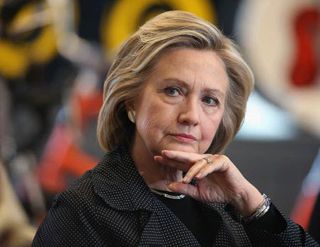Telecom Under the (Madam) President

WASHINGTON — With Donald Trump’s Republican presidential campaign limping into the final stretch, kneecapped by multiple allegations of sexual misconduct and claims of conspiracy and election fraud, it is looking increasingly like Democrat Hillary Clinton’s administration will be the one putting the new stamp on communications policy.
Clinton championed network neutrality as secretary of state; strong network neutrality rules as a U.S. senator from New York; is on the record as supporting municipal broadband buildouts; and has talked the same talk as President Obama about the importance of universal broadband access.
MERGER HAWK?
Clinton could be tougher on mergers than the Obama Federal Communications Commission and Justice Department, which allowed the Comcast-NBCUniversal, DirecTV-AT&T and Charter Communications-Time Warner Cable (and Bright House Networks) mergers, though not without conditions that Republicans branded onerous.
In an October 2015 interview with Website qz.com, Clinton said she would beef up antitrust enforcement at DOJ and the Federal Trade Commission: “I will direct more resources to hire aggressive regulators who will conduct in-depth industry research to better understand the link between market consolidation and stagnating incomes. Ultimately, this will foster a change in corporate culture that restores competition to the marketplace.”
The first woman president would have a number of like candidates for the FCC chairmanship, though the honor of first woman to chair the commission has already been taken by Mignon Clyburn in the interim between Julius Genachowski and Tom Wheeler.
According to various sources, Susan Ness and Karen Kornbluh could be in the running for FCC chairman under Clinton. If the post does not go to a woman, Blair Levin — a former top FCC official and architect of the National Broadband Plan and its spectrum auction — is another name that has surfaced more than once over the years for that job.
Multichannel Newsletter
The smarter way to stay on top of the multichannel video marketplace. Sign up below.
It is not yet clear who would be working on the telecom transition team: Wheeler was a key figure on Obama’s team.
One Democratic source who spoke on background said Ed Meier, who worked on tech issues for the campaign and is on the team, could take a lead role. Levin could also lend a hand and John Podesta, Clinton’s campaign chairman, would almost certainly have input.
On the FCC front, Ness is a former commissioner who has made no secret of her willingness to step into the breach, according to various industry sources. Kornbluh also has a resume that dovetails nicely with the job.
Kornbluh — Ambassador Kornbluh at that — is currently executive vice president for external affairs at Nielsen, but before that she was ambassador to the Organisation for Economic Co-operation and Development under President Obama and served as his policy director when he was a senator. She also has a connection to the Clintons, having served in legislative affairs during Bill Clinton’s administration while at Treasury.
A Clinton administration would at least threaten some of the new money that has come into the political ad market since the U.S. Supreme Court allowed corporations and unions to fund more of those ads. Back in July, she released a video promising to put campaign finance reform at the top of her political agenda and proposed a constitutional amendment overturning the court’s Citizens United decision within the first 30 days of her administration. She also pledged to push for better disclosure of campaign funding.
BROADBAND POLICY
Clinton talked up broadband access and connection as secretary of state in a speech about global information access, which she likened to freedom of assembly. At least one public-interest group did not like the sound of her take on trying to shut down terrorist recruiting online.
She got a thumbs-down (actually a “frowny face”) in a 2016 voter guide from ’net activist group Free Press for this 2015 interview answer on fighting terrorism: “We have to deny them online space. And this is complicated. You’re going to hear all of the usual complaints, you know, freedom of speech, etc. But if we truly are in a war against terrorism and we are truly looking for ways to shut off their funding, shut off the flow of foreign fighters, then we’ve got to shut off their means of communicating.”
Free Press also points out that Clinton in 2015 wrote an op-ed piece in support of the FCC’s pre-emption of state laws limiting municipal broadband buildouts. But with a court reversing the FCC’s pre-emptions in Tennessee and North Carolina, and the Obama administration deciding not to appeal that decision, that effort would likely have to come through funding and championing municipal buildouts in states not trying to block them.
Contributing editor John Eggerton has been an editor and/or writer on media regulation, legislation and policy for over four decades, including covering the FCC, FTC, Congress, the major media trade associations, and the federal courts. In addition to Multichannel News and Broadcasting + Cable, his work has appeared in Radio World, TV Technology, TV Fax, This Week in Consumer Electronics, Variety and the Encyclopedia Britannica.

